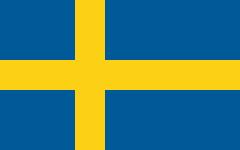After reading this article, which describes an itinerary that will get you from London to Marseilles in six hours, with the newly opened UK high-speed leg of the Eurostar, it made me wonder just where you can get to within six hours, without needing to fly.
Virtually all of Belgium is now within easy reach, taking in the very popular Bruges, Ghent and Antwerp, and of course, Brussels.
London to Amsterdam comes in at five hours and 34 minutes, with a change to an Intercity train at Brussels. Theoretically, the Thalys train on the Brussels to Amsterdam leg should be a little faster than the Intercity service, given it has fewer stops, but it’s probably not worth the extra fare.
London to Frankfurt only just overshoots the mark, coming in at six hours and seven minutes, but just once a day: the 14:32 service, changing at Brussels (arrive 17:23. depart 17:59).
Strasbourg comes in at an average of five hours and 45 minutes, with the shortest trip being five hours and thirteen minutes (departs London at 10:30, arrive Paris Nord 13:53 and then stroll across to Paris Est to catch the TGV Est service to Strasbourg at 14:24).
Luxembourg can be reached via either Brussels or Paris, and ranges from five hours 40 minutes to six hours, with ten departures a day.
The area around Cologne, in Germany, is easily reachable in five hours and ten minutes – and two trains a day will get you there in only four hours and 48 minutes, departing London at 6:57 or 10:00 and changing in Brussels).
Lyon, too, with its high speed TGV line, is an easy destination, coming in anywhere between five and six hours, the shortest trip being just four hours and 50 minutes (departing London 11:05).


Recent Comments